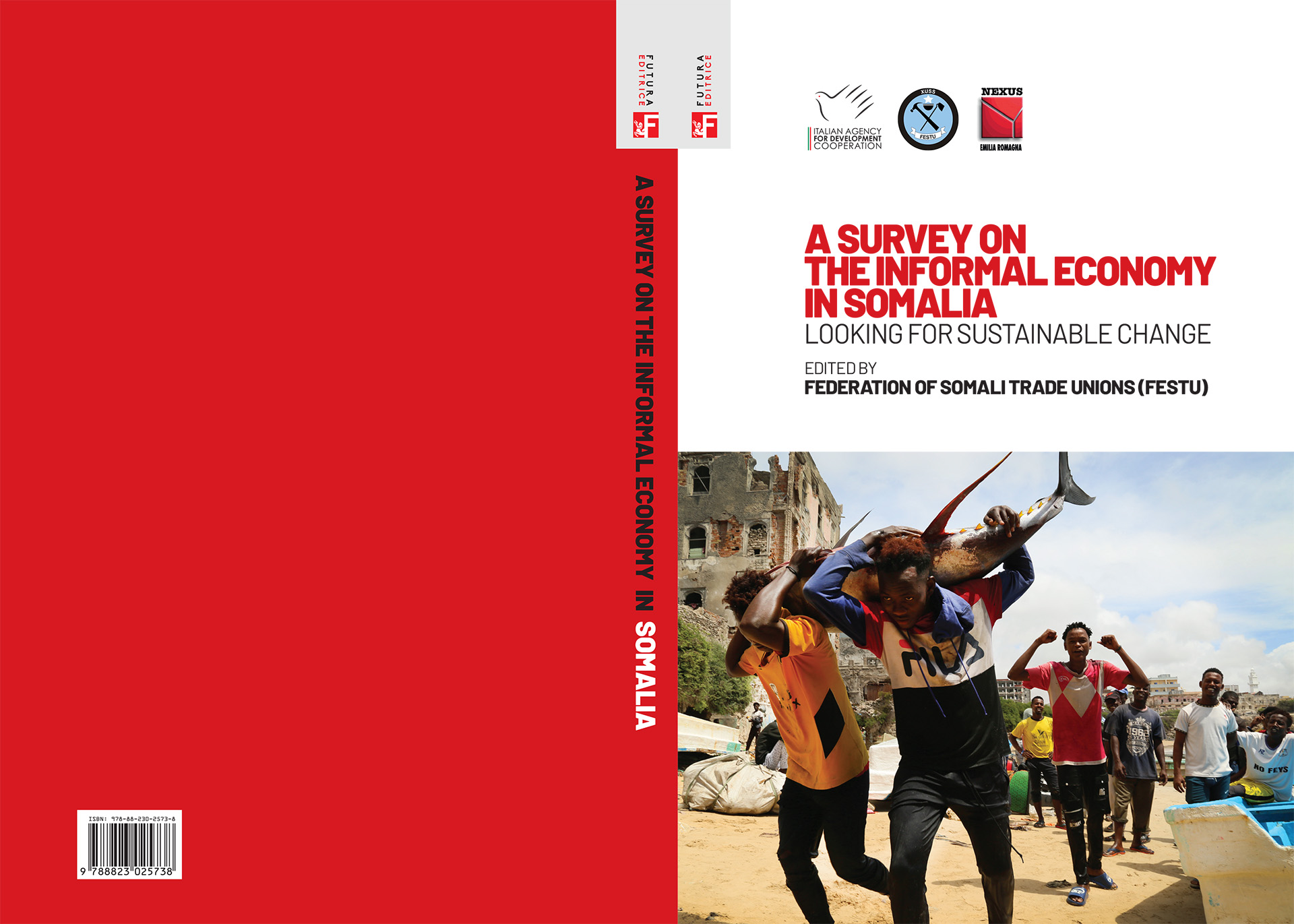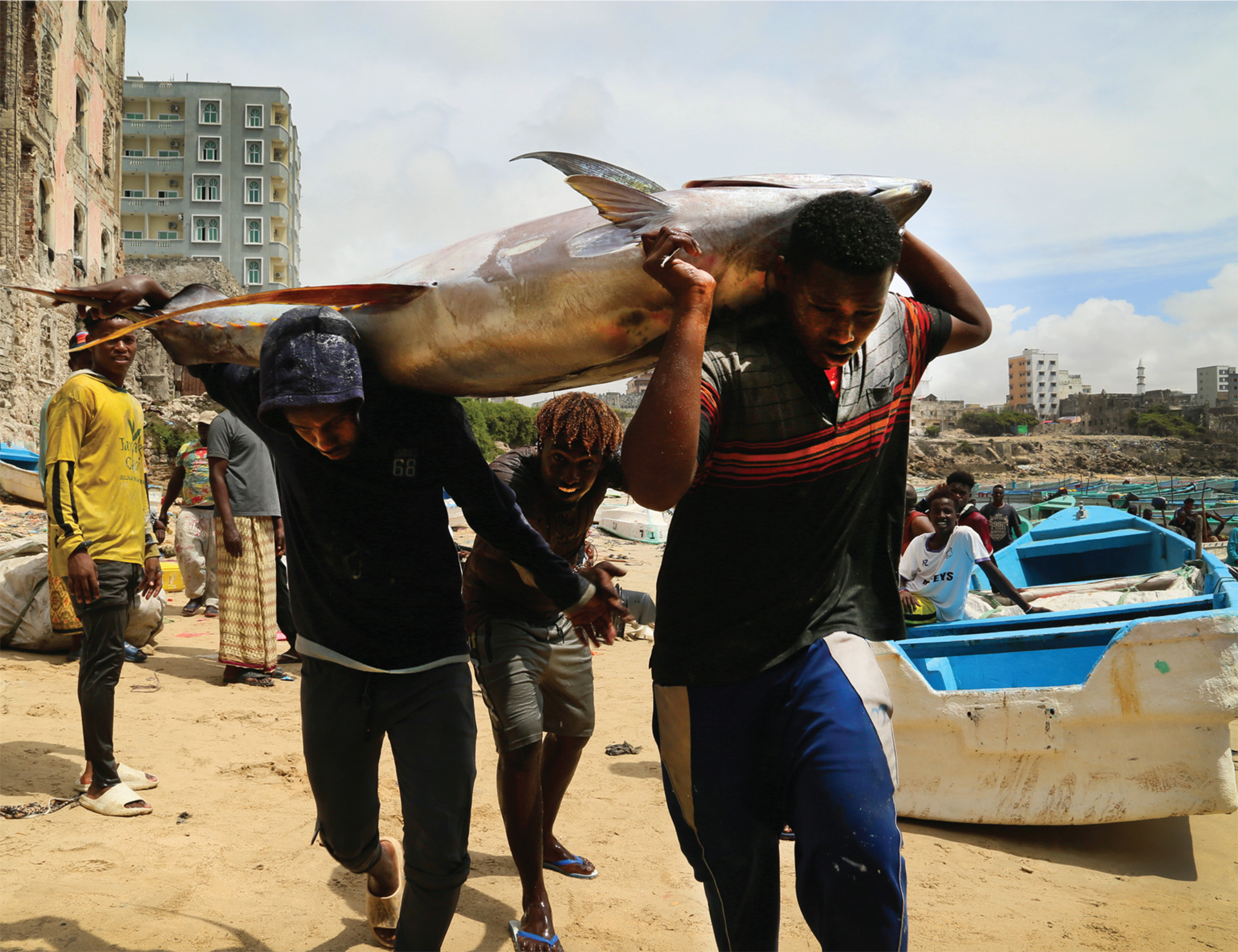 The survey carried out within the project “INFORMA.L. – Educate, Regulate, TRAIN, Work. From informal to formal for inclusive growth, peace and social dialogue” AID 012590/03/0, funded by the Italian Agency for Development Cooperation and implemented by Nexus Emilia Romagna ETS and FESTU, examines the reality of small businesses in the fishing, small-scale trade and textile sectors of six federal states of Somalia and highlights the advantages and key steps to be taken to formalize small businesses in these sectors. The survey represents a fundamental part of the strategy for the transition of the Somali economy from informality to formality, through the identification and resolution of the specific difficulties that informal businesses face, also thanks to a process of social dialogue between the Government, Trade Unions and employers. Through an overview of the Somali economy, the research addressed crucial sectors such as fishing, textiles and small informal businesses in order to gather new insights and promote an in-depth understanding of the country's informal economy.
The survey carried out within the project “INFORMA.L. – Educate, Regulate, TRAIN, Work. From informal to formal for inclusive growth, peace and social dialogue” AID 012590/03/0, funded by the Italian Agency for Development Cooperation and implemented by Nexus Emilia Romagna ETS and FESTU, examines the reality of small businesses in the fishing, small-scale trade and textile sectors of six federal states of Somalia and highlights the advantages and key steps to be taken to formalize small businesses in these sectors. The survey represents a fundamental part of the strategy for the transition of the Somali economy from informality to formality, through the identification and resolution of the specific difficulties that informal businesses face, also thanks to a process of social dialogue between the Government, Trade Unions and employers. Through an overview of the Somali economy, the research addressed crucial sectors such as fishing, textiles and small informal businesses in order to gather new insights and promote an in-depth understanding of the country's informal economy.
This process has been instrumental in highlighting the benefits of socially protected work, the protection of workers' rights and the challenges and vulnerabilities of informal work.
The survey was also essential to the development of the National Action Plan currently underway and developed by the Tripartite Committee composed of some of the most important Somali stakeholders, the Somali Ministry of Labour and Social Affairs (MOLSA), the Somali Chamber of Commerce and Industry (SCCI) and the Federation of Somali Trade Unions (FESTU).
A central element of the research is the crucial role of social dialogue and cooperation between government, workers' representatives and employers in the formalization process. The active participation of these actors is essential to develop effective policies, ensure adequate regulation and build a more equitable and sustainable economic environment.
The study also highlights the need to improve access to financial services for small businesses, raise awareness of the benefits of formalization, and strengthen protections for the most vulnerable workers, especially women and young people. For this reason, the main recommendations include simplifying business registration processes, developing a more robust regulatory framework, and promoting social protection policies.
The research therefore represents not only an analytical tool, but also a concrete starting point for future actions also thanks to the recommendations formulated on the basis of the research results regarding the use of financial services and tax and regulatory assistance for the transition towards a more structured and inclusive economy, a joint commitment and shared strategies between institutions, unions and businesses. Only through systemic change and a strengthening of labor protection policies will it be possible to build a more stable and dignified future for all workers in Somalia.
Based on the research findings, several recommendations were developed, including: promoting access to financial services and business development, enhancing mobile banking, providing financial literacy training and mentoring programs for established businesses. In addition, to improve awareness on formalization, awareness-raising campaigns, bureaucratic simplification and facilitating the business registration process by streamlining administrative procedures and introducing measures to reduce gender inequalities and access to credit are needed. Finally, implementing legislative reforms could facilitate effective dispute resolution, strengthening the stability of the economic system.
DOWNLOAD THE RESEARCH HERE
